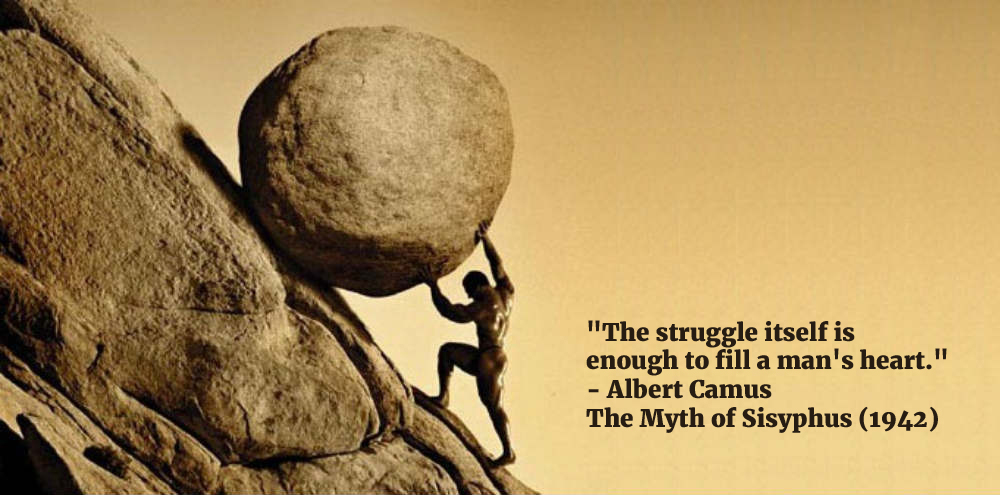The Myth of Sisyphus
is an essay by Albert Camus. Sisyphus was the legendary king of Corinth in ancient Greece who was condemned to eternally rolling a rock to the top of a mountain. The stone would fall back of its own weight and he has to start again. They thought that there is no more dreadful punishment than futile and hopeless labour.
The central theme
of the Myth of Sisyphus is what Camus calls “the absurd” because Sisyphus’ punishment is representative of the human condition: Sisyphus must struggle perpetually and without hope of success. So long as he accepts that there is nothing more to life than this absurd struggle, then he can find happiness in it, says Camus.
What it means to be a writer
is in the last line of the essay: “One must imagine Sisyphus happy.” The perpetual struggle is happiness in itself. There is no more. You roll this enormous, accumulating mass of paper to the top of this mountain and you let it go. And you start again. Camus’ theory is that Sisyphus is happy because what else is he? Camus calls him the “proletarian of the gods”. Sisyphus is the hero of writers and the reason why writers have to live in the absurd and write. The struggle is real.
Ivy Ngeow lives in London. Cry of the Flying Rhino is a debut award-winning novel set in Malaysia and Borneo. Her second novel Heart of Glass is published by Unbound in 2018. She is fond of all struggles but tackles them one boulder at a time.
#cryoftheflyingrhino #heartofglass Tweet me: @ivyngeow

